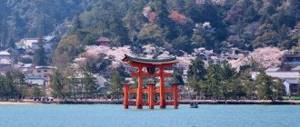Japan is a country of interesting combinations and experiments; ancient and modern times merge here. When you fly here for the first time, you get the impression that you are on another planet; there are many modern glass skyscrapers, shops, cafes, and restaurants around. Life here is vibrant and you want to enjoy this energy and strength. At the same time, the country surprises with its ancient beauty and rich history. But today we will look at the issue of cellular communications, because Japan has its own peculiarities that you need to know about.
For long term students
Long-term plans and contracts are available for those on a student visa, although there are still some restrictions. Depending on the length of your stay, most foreigners in Japan are usually required to pay the full price of the phone upon purchase, which can be quite expensive if you're planning on purchasing a new smartphone. It depends on your telecom operator.
Registration of a tariff plan
To sign up for a tariff plan, you will need a resident card (Zairyū card), passport, and a Japanese bank account (bring your bank book). Although the process itself may seem expensive, almost all Japanese and foreigners who come on a long-term basis choose this option because it offers a large number of services available and saves money in the long run.
SIM card
For long-term students, it is quite possible to simply buy a SIM card, for example from a service like Mobal . With them you can even get a SIM card right at the airport or have it delivered to your address. Attention: you will need to make sure that your phone is unlocked (you can use SIM cards), and you will definitely need a credit card for payment. Also, not all countries are eligible for international shipping, so please check in advance! It's currently available in the US, Canada, UK, Ireland and Australia, but it's best to check anyway. If your country is not on this list, then to deliver the SIM card you will need to provide an address in Japan or pick it up at the airport. The cost of tariff plans in this case ranges from 1000 to 4500 yen per month. If you use the Go! Go! Nihon, you can contact Mobal directly for details, along with some benefits!
Cheap cellular communications in Japan with Globalsim
The most expensive tariff for tourists is offered by the mobile operator Comfort Way (1.9 euros or 147 rubles per MB). Russian operators offer the following options:
Beeline – 50 MB for 250 rubles
After all that has been said, it seems that cheap mobile Internet in Japan is simply unrealistic. Therefore, we invite you to consider a SIM card from the Globalsim operator, which gives freedom to its subscribers. On Globalsim cards you can connect to the Internet package “Asia”. For just $39 you get 3GB of mobile internet in Japan.
Calls to Russia from Japan are quite expensive. On Globalsim cards, communication in 140 countries (incoming is free), the cost of an outgoing minute is only 25 cents, there is no mandatory daily payment for services. Mobile Internet almost all over the world at competitive rates, various package options, you can connect traffic for a day or a month.
You can compare tariffs and choose the best option using the link
For short term students
For students arriving on a tourist visa, there are not many options. There is no point in signing a long-term contract with a service provider if you will only be staying in Japan for a few months. There are four standard options for obtaining mobile communications for short-term students:
Prepaid mobile phone
SoftBank is the most foreigner-friendly provider in Japan and the only operator that offers prepaid mobile phones . The only thing you need to take with you for registration is your passport. To get such a phone, simply go to any official Softbank store (in a separate office, not at a kiosk in a mall or electronics store) and tell the employees what you are looking for. Even if you don't speak Japanese, almost all Softbank stores have at least one employee who speaks English. Prepaid phones cost between 4,000 and 7,000 yen (about $40 to $70), although prices vary depending on models and service options.
Free calls are available, and unlimited texting can be added for a small fee, although calls to other carrier numbers can be quite expensive. You can top up your phone using the SoftBank website, bank transfer, or prepaid phone cards, which can be found at any convenience store (convenience store).
SIM cards only with prepaid Internet traffic
For students with unlocked (SIM card capable) smartphones , this is the most convenient option for using a mobile phone in Japan. B-Mobile offers prepaid SIM cards that support the Docomo network, so be sure to check that your phone supports the appropriate GSM frequencies before purchasing. Remember that these SIM cards are data only, so you won't be able to make or receive regular phone calls. Find out more about pricing, delivery and service options on the B-mobile website.
Pocket Wi-Fi router
Don't want to worry about buying and setting up a SIM card that may not suit your phone? Another potential solution for those who only need an Internet connection is a pocket Wi-Fi router that you can carry with you throughout the day. Ninja Wifi is the company that provides this service, which allows you to connect up to 10 devices to the Internet at the same time, with plans ranging from 3,000 to 6,000 yen per month, depending on data volume. This company is a regular partner of the Go! Go! Nihon and therefore all students applying through us receive benefits such as discounts on activation and insurance. For more information about Ninja Wifi, please contact us!
Telephone rental
Renting a phone is another affordable option for short-term students who don't plan to stay in Japan for more than a month. To rent a phone, you only need to show a photo ID and credit card. For regular mobile phones, the fee is 200–500 yen ($2–5) per day, and for smartphones, the fee is 1000–2000 yen ($10–20) per day. While this option may seem a little expensive, there are special offers and discounts for those who pre-order the phone before arriving in Japan.
Roaming
Finally, it may be tempting to just skip the trouble and use a roaming plan for Japan from an operator in your country. But it’s better not to do this, unless of course your parents are millionaires and you fly to Japan on a private jet.
Mobile communications in Japan: features
When going to the land of the rising sun, you should not rely on the issue of mobile communications and the Internet being resolved on the spot. And although there are four mobile operators in the country (DOCOMO, AU (KDDI), Softbank and Emobile) with English-language websites, where everything is described in detail about tariffs for tourists. You shouldn’t get your hopes up, because to get a SIM card you need to submit certain data and documents, and this list is quite large. It is quite difficult for a tourist to cope with this task, so it is not worth studying the offers of local operators. What then should an ordinary tourist do, who is not a resident of the country and came here for a week or two? There are two options:
- Roaming (but in order to use it, you need a phone with 3G, since the GSM standard is not relevant here).
- Rent any device (from a router, SIM card to a smartphone).
Evolution without revolution?
The Japanese application sounded loud. But in fact, even the concept of 6G as such does not exist yet. Scientists are still wondering how to build this network. Although there is no doubt that new requirements will appear soon. For example, to increase the data transfer rate, it is necessary to make fewer cells, so that the distance between transmitters is shorter and the network is denser. In addition, the algorithm for creating this network will, of course, still be further developed, and the 6G network itself will be improved.
But still: there will not be such a significant gain as when moving from the previous “tiers” of G to new ones (up to 5G).
The transition from 3G to 4G could be called a technological revolution: then turbo codes were introduced and the likelihood of errors was significantly reduced, there were also a lot of discoveries in the field of signal processing and various access methods.
Today, all these methods are more or less developed, and on the way to the “five” there were only improvements to existing solutions.
If this vector is included in the 6G project, then we will face some kind of evolution, but not a revolution. However, it cannot be ruled out either: today the most promising direction for development is the machine learning method, the desire to make networks more intelligent, and if research on creating a new generation network moves in these directions, everything will turn out differently.
Russian Embassy
Russian Embassy in Japan
Address: Tokyo, Minato-ku, Azabudai, 2-1-1 (〒106-0041東京都港区麻布台2-1-1) Telephone: (8 10 81 3) 35 83 42 24 Opening hours: Mon-Fri 09 :00-12:30, 14:00-18:00 (summer - until 17:30)
Russian Consulate in Sapporo
Address: Sapporo, Chuo-ku, Minami 14, Nishi 12-2-5(〒064-0914札幌市中央区南十四条西12丁目2-5) Phone: (8 10 81 11) 561 31 71 Opening hours : Mon-Fri 14:00-16:00
Russian Consulate in Hakodate
Address: pref. Hokkaido, Hakodate, Motomachi 14-1(〒040-0054北海道函館市元町14-1) Telephone: (8 10 81 Opening hours: Tue-Fri 10:00-12:00
Russian Consulate in Osaka
Address: Osaka, Toyonaka, Nishimidorigaoka, 1-2-2(〒560-0005豊中市西緑ヶ丘1-2-2) Telephone: (8 10 81 06) 68 48 34 51 Opening hours: Tue-Fri 09:30- 12:30
List of telephone operators and their MCC codes
Perhaps you were looking for MCC codes for payment card transactions
MCC (English Mobile Country Code) - a mobile country code in combination with MNC is a unique identifier of a cellular operator of GSM, CDMA, iDEN, TETRA and UMTS networks, as well as some satellite operators. What is an MCC code can be read here. Code 901 is international and is used, for example, in satellite communications. MCC codes 000-099, 100-199, and 800-899 are reserved. You can get the operator and region by phone number here. You can get the operator and region by IP address here.
To get a list of operators in a given country, click on the MCC code ↓
| A country | MCC code |
| Abkhazia | 289 |
| Australia | 505 |
| Austria | 232 |
| Azerbaijan | 400 |
| Albania | 276 |
| Algeria | 603 |
| American Samoa | 544 |
| Anguilla | 365 |
| Angola | 631 |
| Andorra | 213 |
| Antigua and Barbuda | 344 |
| Argentina | 722 |
| Armenia | 283 |
| Aruba | 363 |
| Afghanistan | 412 |
| Bahamas, The | 364 |
| Bangladesh | 470 |
| Barbados | 342 |
| Bahrain | 426 |
| Belarus | 257 |
| Belize | 702 |
| Belgium | 206 |
| Benin | 616 |
| Bermuda | 350 |
| Bulgaria | 284 |
| Bolivia | 736 |
| Bosnia and Herzegovina | 218 |
| Botswana | 652 |
| Brazil | 724 |
| Brunei Darussalam | 528 |
| Burkina Faso | 613 |
| Burundi | 642 |
| Bhutan | 402 |
| Vanuatu | 541 |
| Hungary | 216 |
| Venezuela | 734 |
| Virgin Islands, British (British Virgin Islands) | 348 |
| Virgin Islands, USA | 332 |
| Vietnam | 452 |
| Gabon | 628 |
| Haiti | 372 |
| Guyana | 738 |
| Gambia, The | 607 |
| Ghana | 620 |
| Guadeloupe | 340 |
| Guatemala | 704 |
| Guinea | 611 |
| Guinea-Bissau | 632 |
| Germany | 262 |
| Gibraltar | 266 |
| Honduras | 708 |
| Hong Kong | 454 |
| Grenada | 352 |
| Greenland | 290 |
| Greece | 202 |
| Georgia | 282 |
| Guam | 535 |
| Denmark | 238 |
| Djibouti | 638 |
| Dominica | 366 |
| Dominican Republic | 370 |
| Egypt | 602 |
| Zambia | 645 |
| Zimbabwe | 648 |
| Israel | 425 |
| India | 405 |
| Indonesia | 510 |
| Jordan | 416 |
| Iraq | 418 |
| Iran, Islamic Republic (Iran) | 432 |
| Ireland | 272 |
| Iceland | 274 |
| Spain | 214 |
| Italy | 222 |
| Yemen | 421 |
| Cape Verde | 625 |
| Kazakhstan | 401 |
| Cambodia | 456 |
| Cameroon | 624 |
| Canada | 302 |
| Qatar | 427 |
| Kenya | 639 |
| Cyprus | 280 |
| Kyrgyzstan | 437 |
| Kiribati | 545 |
| China | 460 |
| Colombia | 732 |
| Comoros | 654 |
| Congo, Republic of the | 629 |
| Congo, Democratic Republic of the | 630 |
| Costa Rica | 712 |
| Cote d'Ivoire | 612 |
| Cuba | 368 |
| Kuwait | 419 |
| Laos | 457 |
| Latvia | 247 |
| Lesotho | 651 |
| Liberia | 618 |
| Lebanon (Lebanon) | 415 |
| Libya (Libya) | 606 |
| Lithuania | 246 |
| Liechtenstein | 295 |
| Luxembourg | 270 |
| Mauritius | 617 |
| Mauritania | 609 |
| Madagascar | 646 |
| Macau | 455 |
| Macedonia | 294 |
| Malawi | 650 |
| Malaysia | 502 |
| Mali | 610 |
| Maldives | 472 |
| Malta | 278 |
| Morocco | 604 |
| Martinique | 340 |
| Marshall Islands | 551 |
| Mexico | 334 |
| Micronesia, Federated States of | 550 |
| Mozambique | 643 |
| Moldova, Republic of Moldova | 259 |
| Monaco | 212 |
| Mongolia | 428 |
| Montserrat | 354 |
| Myanmar | 414 |
| Namibia | 649 |
| Nauru | 536 |
| Nepal | 429 |
| Niger | 614 |
| Nigeria | 621 |
| Netherlands Antilles | 362 |
| Netherlands | 204 |
| Nicaragua | 710 |
| New Zealand | 530 |
| New Caledonia | 546 |
| Norway | 242 |
| United Arab Emirates | 431 |
| Oman | 422 |
| Cayman Islands | 346 |
| Cook Islands | 548 |
| Turks and Caicos Islands | 376 |
| Pakistan | 410 |
| Palau | 552 |
| Palestine | 423 |
| Panama | 714 |
| Papal See (State - Vatican City) (Vatican) | 225 |
| Papua New Guinea | 537 |
| Paraguay | 744 |
| Peru | 716 |
| Poland | 260 |
| Portugal | 268 |
| Puerto Rico | 330 |
| Reunion | 647 |
| Russia | 250 |
| Rwanda | 635 |
| Romania | 226 |
| Samoa | 549 |
| San Marino | 292 |
| Sao Tome and Principe | 626 |
| Saudi Arabia | 420 |
| Swaziland | 653 |
| North Korea (Korea, North) | 467 |
| Northern Mariana Islands | 534 |
| Seychelles | 633 |
| Saint Pierre and Miquelon | 308 |
| Senegal | 608 |
| Saint Vincent and the Grenadines | 360 |
| Saint Kitts and Nevis | 356 |
| Saint Lucia | 358 |
| Serbia | 220 |
| Singapore | 525 |
| Syrian Arab Republic (Syria) | 417 |
| Slovakia | 231 |
| Slovenia | 293 |
| United Kingdom | 234 |
| United States | 316 |
| Solomon Islands | 540 |
| Somalia | 637 |
| Sudan | 634 |
| Suriname | 746 |
| Sierra Leone | 619 |
| Tajikistan | 436 |
| Thailand | 520 |
| Taiwan (China) | 466 |
| Tanzania, United Republic of Tanzania | 640 |
| Timor-Leste | 514 |
| Togo | 615 |
| Tonga | 539 |
| Trinidad and Tobago | 374 |
| Tunisia | 605 |
| Turkmenistan | 438 |
| Turkey | 286 |
| Uganda | 641 |
| Uzbekistan | 434 |
| Ukraine | 255 |
| Wallis and Futuna | 543 |
| Uruguay | 748 |
| Faroe Islands | 288 |
| Fiji | 542 |
| Philippines | 515 |
| Finland | 244 |
| Falkland Islands (Islas Malvinas) | 750 |
| France | 208 |
| French Guiana | 742 |
| French Polynesia | 547 |
| Croatia | 219 |
| Central African Republic | 623 |
| Chad | 622 |
| Montenegro | 297 |
| Czech Republic | 230 |
| Chile | 730 |
| Switzerland | 228 |
| Sweden | 240 |
| Sri Lanka | 413 |
| Ecuador | 740 |
| Equatorial Guinea | 627 |
| El Salvador | 706 |
| Eritrea | 657 |
| Estonia | 248 |
| Ethiopia | 636 |
| South Africa | 655 |
| South Korea | 450 |
| Jamaica | 338 |
| Japan | 440 |
Domain zones and whois servers for domain zones.
All geo-services.
. Comment/Thank
Internet price: free or expensive
To save money in Japan, you can access the Internet only through free Wi-Fi, which is equipped in many hotels, cafes and bars. But in this situation, most of the time in the land of the rising sun, the tourist will be inaccessible to relatives and friends who remain in Russia. You need to be prepared for this. After all, you can’t sit in an Internet cafe for half of your vacation or vacation!
To always have the Internet at your fingertips, you can consider the offers of Japanese mobile operators - NTT DoCoMo, SoftBank and KDDI. However, purchasing their SIM cards is a troublesome procedure. One of the prerequisites for this is the possession of an international credit card.
You can avoid such hassle if you buy or rent a Japanese phone along with a local SIM card. The approximate rental price is 1200 yen (about 700 rubles) per day. As a rule, such mobile devices are designed to be serviced by only one operator, so they may be useless in Russia. In addition, their tariff plans are expensive for most tourists.
Internet access in Japan is also provided by international operators. Their SIM cards are sold in Tokyo airport terminals, and their services are somewhat more affordable. For example, a two-week package, which includes 100 MB of Internet, costs 5,350 yen (about 3,200 rubles).
A trip on the Tokyo subway is not complete without surfing the Internet.









